Kor-Eng Translator - precise Kor-Eng translation

Welcome! I can help you translate between Korean and English.
Bridging languages with AI precision.
Translate the following Korean text to English:
Translate the following English text to Korean:
Please provide an English translation for this Korean sentence:
Please provide a Korean translation for this English sentence:
Get Embed Code
Overview of Kor-Eng Translator
Kor-Eng Translator is a specialized tool designed to facilitate seamless communication between Korean and English by providing precise translations. It is engineered to handle translations in both directions: from Korean to English and vice versa. The core purpose of this tool is to break down language barriers, ensuring that nuances and subtleties of both languages are accurately conveyed. A typical scenario might involve translating an email from a Korean business partner into English, ensuring that all the details and tones of the original message are preserved. Powered by ChatGPT-4o。

Core Functions and Applications
Text Translation
Example
Translating an English user manual into Korean for a tech product.
Scenario
A tech company wants to expand its market to Korea and needs its product manuals translated to Korean for local consumers.
Real-time Conversation Translation
Example
Facilitating a real-time chat between an English-speaking doctor and a Korean patient.
Scenario
In a telemedicine app, a real-time translation feature powered by Kor-Eng Translator helps overcome the language barrier between healthcare professionals and patients.
Cultural Nuance Integration
Example
Adapting an English marketing campaign to resonate with Korean cultural values and expressions.
Scenario
A marketing agency tailors an English ad campaign for the Korean market, ensuring that all messages are culturally sensitive and appealing.
Target Users of Kor-Eng Translator
Business Professionals
Individuals involved in international trade, negotiations, or partnerships between Korean and English-speaking entities would find this tool invaluable for clear communication.
Educators and Students
Academics and students engaged in language studies or requiring access to resources in both languages would benefit greatly, facilitating research and learning.
Travelers and Expatriates
People traveling to or living in Korea or English-speaking countries would use the translator for daily interactions, navigating new environments, and cultural immersion.

How to Use Kor-Eng Translator
1
Visit yeschat.ai for a no-login-required, free trial experience, eliminating the need for ChatGPT Plus.
2
Choose the 'Kor-Eng Translator' from the available tool options to start your translation session.
3
Enter the text you need translated in the provided text box. Ensure you input Korean text for English translations and vice versa.
4
Click the 'Translate' button to receive your translation. For ambiguous texts, you might receive up to three different translations for clarity.
5
Utilize the feedback option to improve accuracy. Share how accurate the translation was and suggest improvements if necessary.
Try other advanced and practical GPTs
Translate Eng To Kor
AI-powered English to Korean Translation
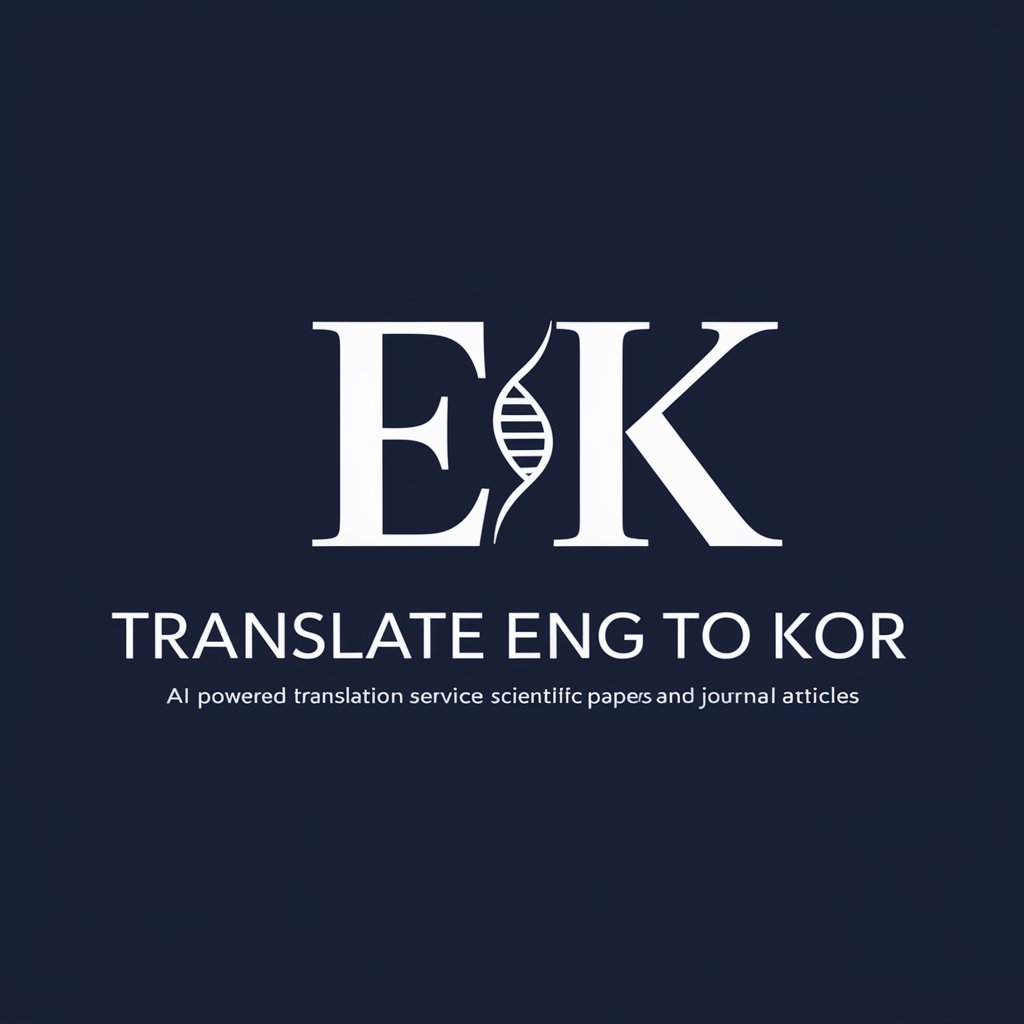
KOR <-> ENG Translator
Bridging Languages with AI Efficiency
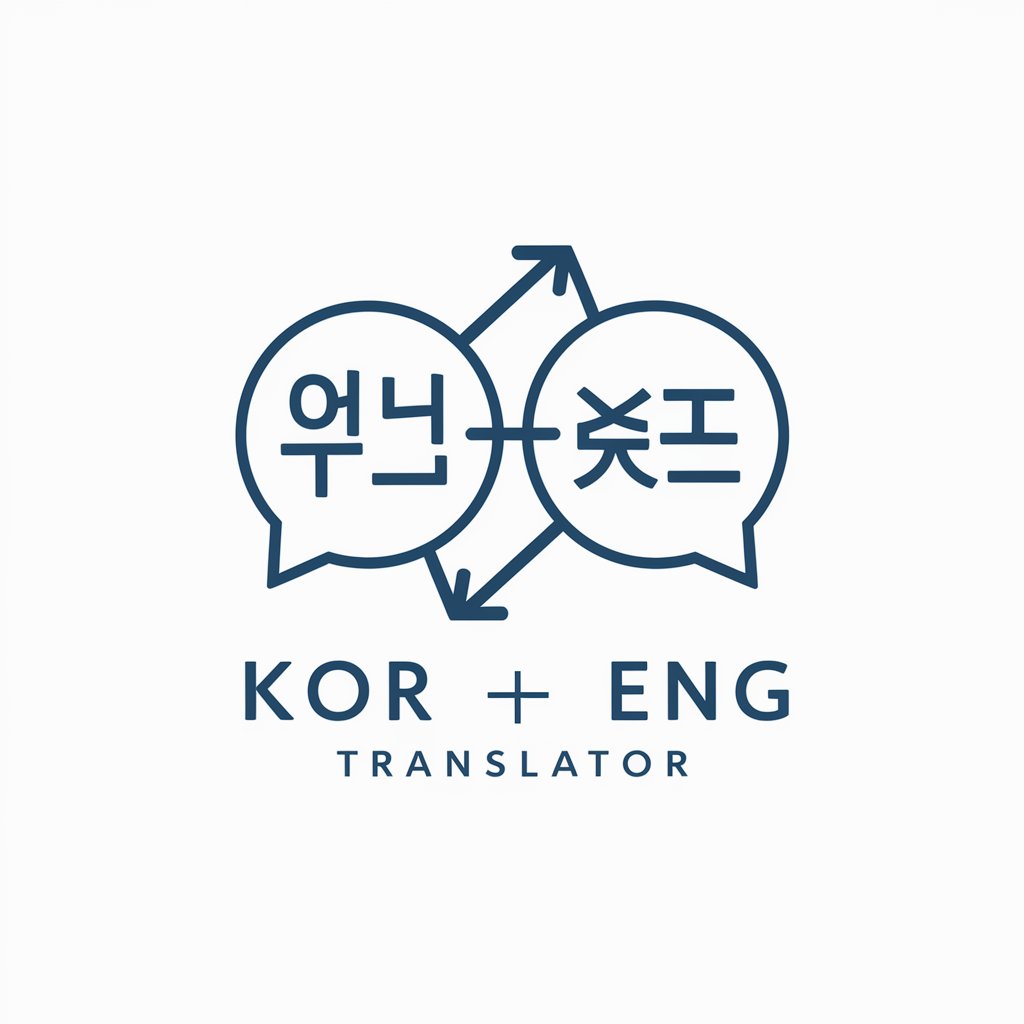
Eng-Kor Translator
Effortlessly translate English text to Korean with AI-powered precision.

Quick Kor-Eng Translator
Bridging Languages with AI
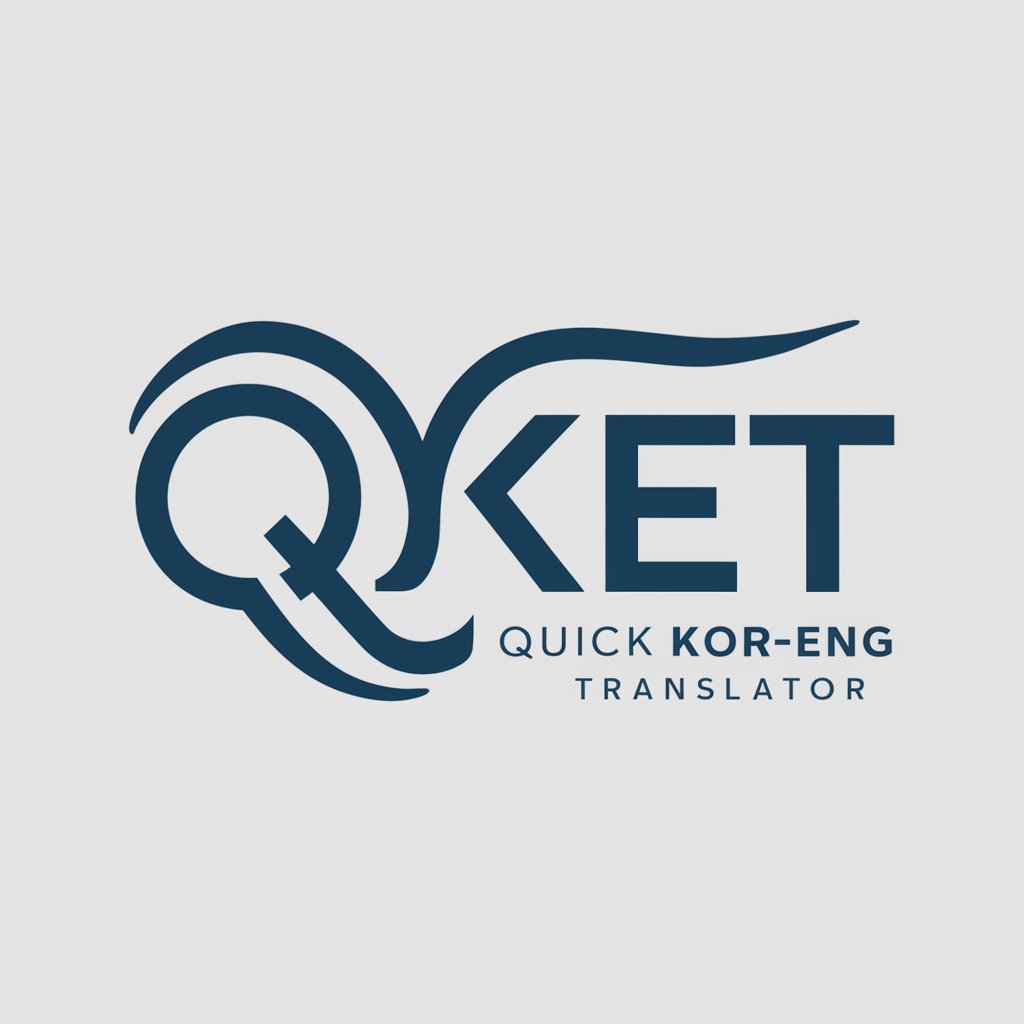
GuardianAngelGPT(KOR)
Navigating safety with AI guidance

Biz Eng-Kor Translator
AI-Powered Precision in English-Korean Business Translations

Kor-Eng Interpreter
Seamless AI-powered language bridging
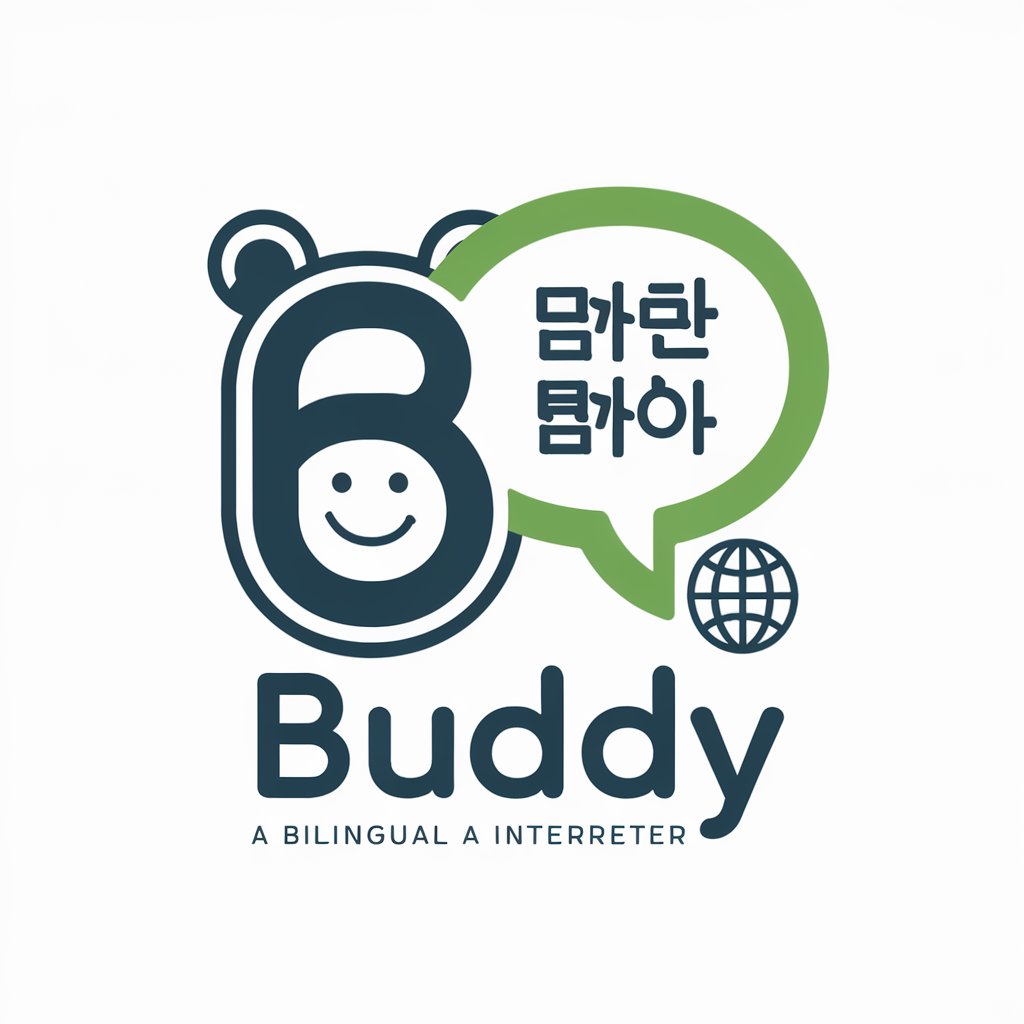
Kor-Eng Translator
Bridging Languages with AI Power
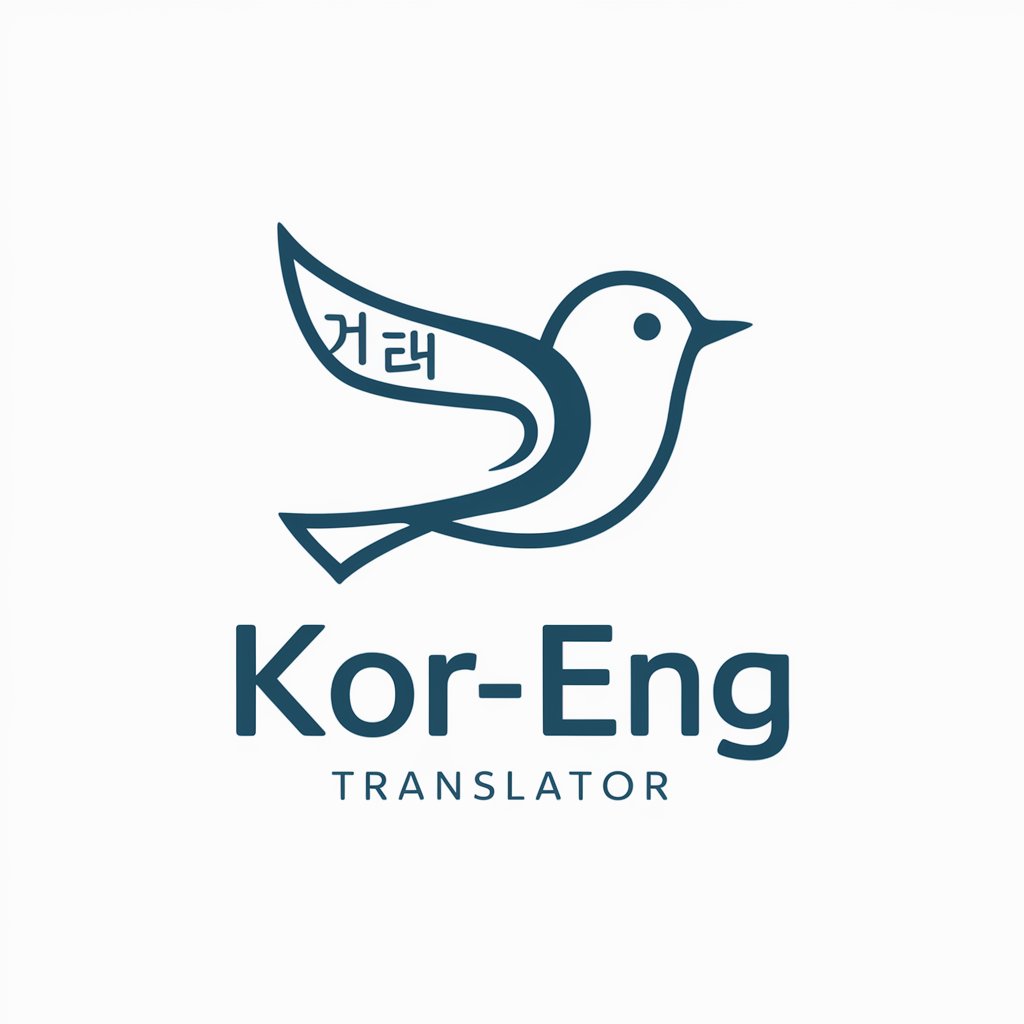
영어/한글 자동번역 (ENG&KOR auto translation)
Bridging Languages with AI
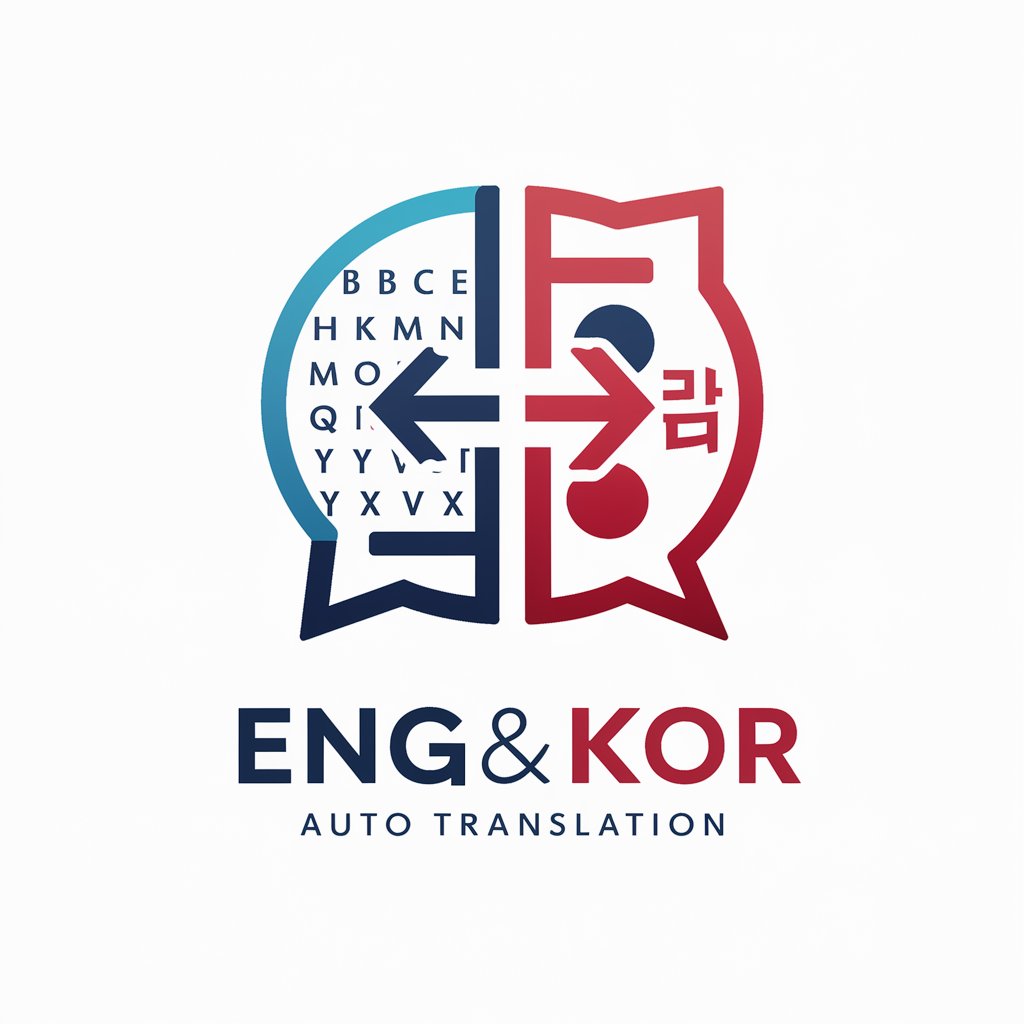
Kor<->Eng Translator
AI-Powered Precision in Every Translation
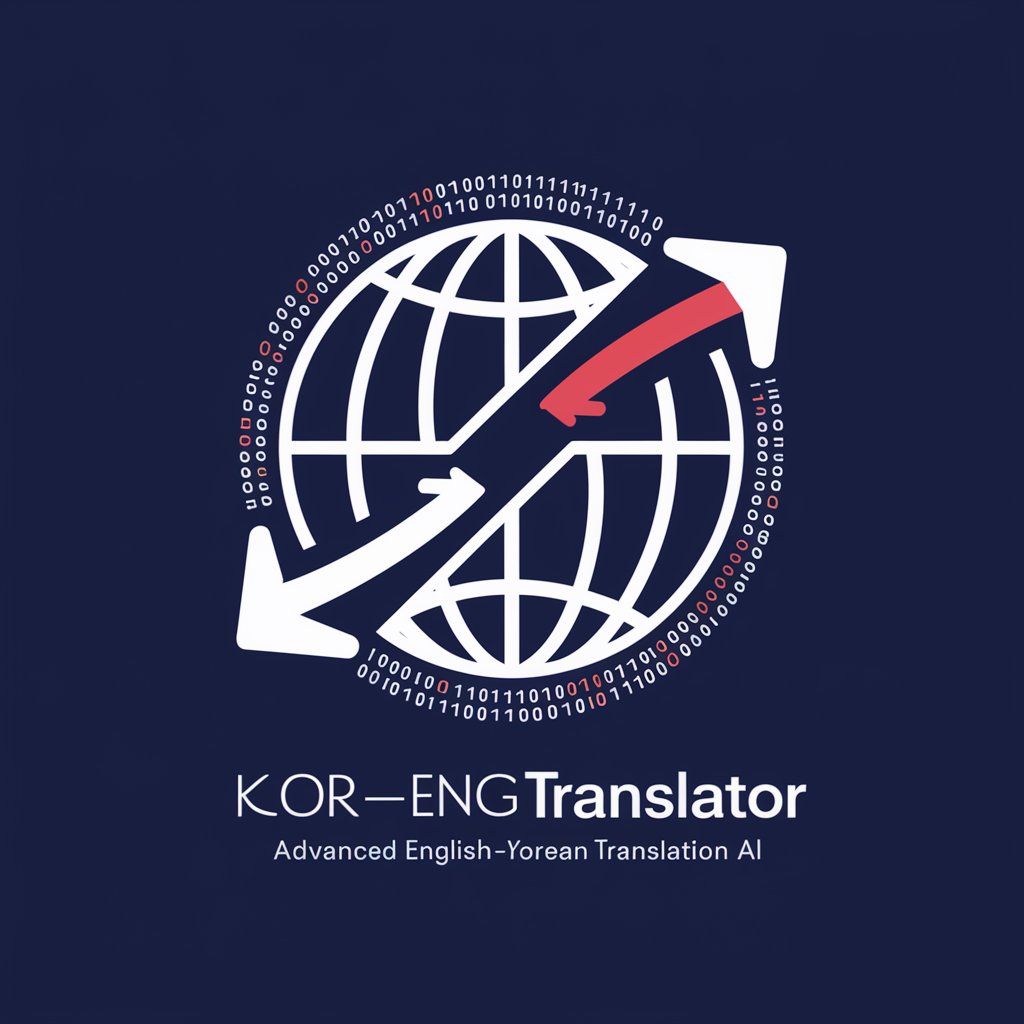
ᗷEᘜGᗩᖇ
Master the art of begging with AI wit

🙏💛비트코인 거지 Bitcoin beggar
Begging for Bitcoin, one chat at a time

Frequently Asked Questions about Kor-Eng Translator
Can Kor-Eng Translator handle both formal and informal language?
Yes, it's designed to accurately translate both formal and informal language, recognizing nuances and context to provide the most appropriate translation.
Is there a word limit for translations?
While there's no strict word limit, extremely long texts may require more time to translate. For optimal performance, it's recommended to keep translations under 1,000 words.
How does the translator handle idiomatic expressions?
Kor-Eng Translator is trained to recognize and translate idiomatic expressions by finding equivalent phrases or explaining the meaning directly in the target language.
Can it translate technical or specialized texts?
Yes, it's capable of translating texts with specialized vocabulary by using context to determine the most accurate translations for technical terms.
What should I do if I receive multiple translations for a single input?
Review each translation to determine which best fits your context. Multiple translations are provided to cover different possible interpretations of ambiguous inputs.
